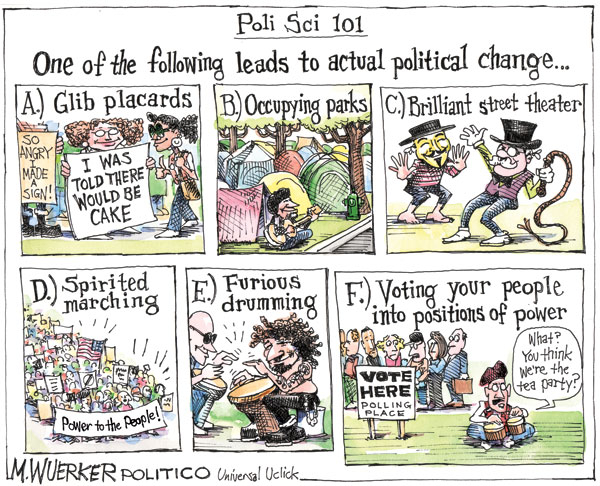Obama: more for thee, but not for me
Taxation, Vulgar PoliticsPresident Obama pays a lower tax rate than his secretary – the very sort of disparity which, according to his own staff, illustrates why the so-called “Buffett Rule” needs to be implemented so that the wealthy pay more.
But Obama won’t consider the idea of simply donating more to the Treasury to address the gap – oh no! “That’s not the way we operate our tax system, okay?” his campaign strategist says. “We don’t run bake sales. It’s not about volunteerism. We all kick in according to the system.”
He’s right. It’s not about “volunteerism.” It’s about violence. Pay your “fair share,” or the government will take it from you by force. They won’t even entertain the novel idea that if people wanted to give the government more money, they could – the Treasury Department will gladly accept their check! But that’s somehow less legitimate than pointing a gun at them and taking whatever the law decrees is “fair.”
And yes, I am reminded of the scene from Monty Python and the Holy Grail where the peasant observes “now we see the violence inherent in the system!” If only we had a government which derived its authority from a mandate from the masses…
Bonus reading: Matt Welch on the five new ways the IRS is screwing Americans. Happy Tax Day!
Obama: more for thee, but not for me Read Post »


 If you seek power over others, how much of an advantage does raw intelligence gain you?
If you seek power over others, how much of an advantage does raw intelligence gain you?